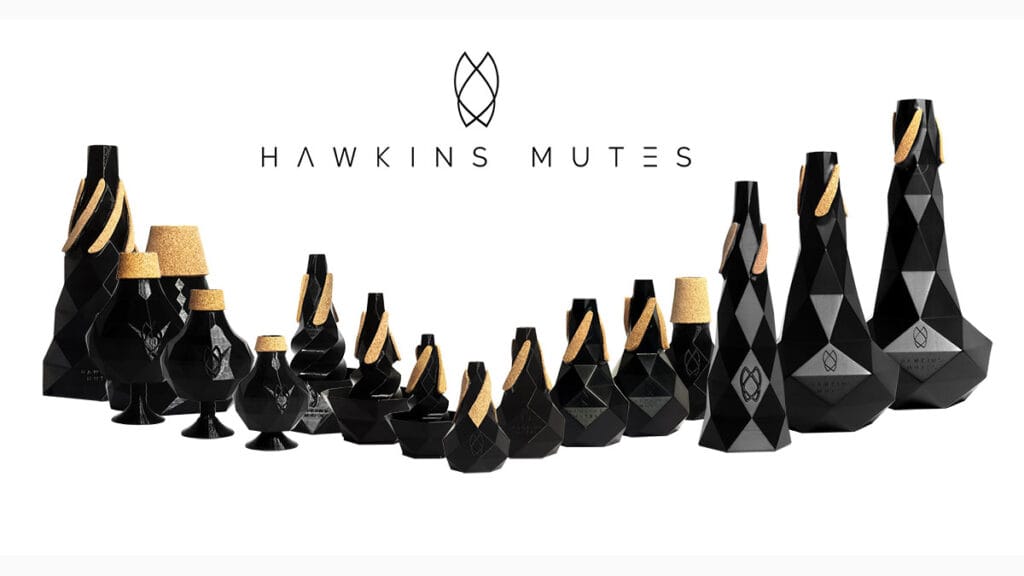Welcome to our guide on how to choose the best trumpet mute for your playing style and needs. Whether you are a beginner or an experienced trumpet player, choosing the right mute can make a significant difference to your performance. Here are the factors you need to consider when selecting the best trumpet mute.

Type of Trumpet Mute
To choose the best trumpet mute we first need to know what type of mute is required. There are various types of mutes such as straight mutes, cup mutes, harmon mutes, and plunger mutes. Each type offers a unique sound and timbre, so experiment to find the ones that suit your playing style.
Material and Construction
Mutes are made from a wide variety of materials, from wood and fibre to aluminium and copper. Metal mutes, especially in the straight mute category, have the most ‘zing’ or edge to the sound; wood and fibre mutes have the least. ABS and HDPE sit between these two extremes, and in some ways provide a happy medium, in the goldilocks zone. These will blend with the widest breadth of sections, regardless of what kit they use. It’s good to consider what everyone else is using, so that you don’t stand out in a section.
Timbre Control
Choose a mute that allows you to adjust the timbre for precise control over your sound.
Consider mutes with features such as threaded and lockable tubes for easy customization. Consider the design and construction of the mute for optimal sound projection and resonance.
Bell Fitment
Ensure the mute fits your trumpet’s bell size and shape for a secure, stable fit. Don’t be afraid to sand down the corks to get a better fit, and therefore better sound. Ask the retailer to assist if this makes you nervous! A good fit is key for achieving consistent sound quality and ease of use.
Weight and Portability
Look for a lightweight mute that won’t add unnecessary weight to your instrument. Light weight is generally seen as a positive trait, as it makes the mute less likely to fall out. A portable mute is ideal for practice, performance, and travel.
Sound Quality
Seek a mute that provides a smooth, dark timbre and enhances your trumpet’s natural sound. Check the tuning (very important!) to ensure you don’t have to change the tuning slide when using it.
Ideally, test the mute in different playing environments to ensure it meets your expectations.
Price and Budget
Compare prices of different mutes and find one that offers the best value for your budget.
Consider investing in a high-quality mute for long-term satisfaction and performance. The difference between a good quality beginner straight mute (say £35), and a professional model (say £70+) may sway your purchasing decision. A professional mute will be an investment for life, will aid and enhance the player, and retain a higher resale value.
There are some very cheap mutes available on the usual online selling platforms; these inferior products can affect your tuning, force you to make compromises to your technique in order to play them, and just sound plain bad. To be avoided, as a general rule.
Suggested Purchasing Order
If you’re just starting out in the world of trumpet playing, and you don’t want to commit to buying a bundle straight away, the order in which you purchase your mutes matters. A pragmatic approach is as follows:
- Straight mute (essential for classical/band playing)
- Cup mute (useful for band playing, essential for big band/jazz. Adjustable cup mutes give maximum flexibility of sounds, Fixed cup mutes give you one known sound, every time.)
- Harmon mute (again, big band and jazz)
- Plunger mute (for jazz solos and big band section work)
- Practice mute (just makes it quieter. Caution though: practice mutes can introduce undesirable playing habits, so use it sparingly for warm-ups, for example.)
There are some other more esoteric mutes to choose from, but these will cover 99% of how to choose the best trumpet mute.
Some Thoughts On Why We Use Mutes
A quick side note on the purpose of mutes. There is a common misconception that a mute should make the sound, well, ‘muted’, i.e. quieter. This is really only the case with practice mutes, which are designed for that exact purpose. The other mutes are mainly for changing the character of the sound. And as a trumpet player, you want to be heard, otherwise what’s the point, right?? 
Conclusion
It’s a fact of musical life; as a trumpet player, you will need mutes. And choosing the best trumpet mute can enhance your playing experience and elevate your music. Explore our wide selection of trumpet mutes today and discover the perfect mute for your needs. And enjoy your trumpet-playing journey!



